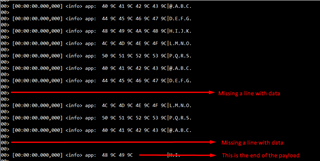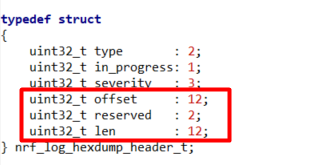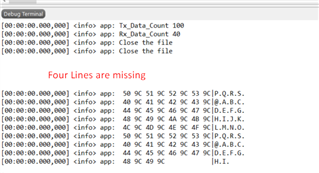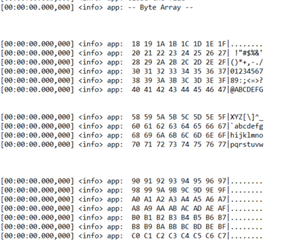Hi everyone,
I want to serial print an array of bytes in hex format. The array size is 200bytes. I tried to use the NRF_LOG_HEXDUMP_INFO but it doesn't print all the array, it prints just the first 72bytes
The second approach works fine. How I would like to use the NRF_LOG_HEXDUMP_INFO since it is an out of the box function.
// First approach
NRF_LOG_HEXDUMP_INFO(read_raw_data,read_payload);
// Second approach
char changeline = 20;
for (int i = 0; i < read_payload; i++) {
NRF_LOG_RAW_INFO("0x%x ", read_raw_data[i]);
NRF_LOG_FLUSH();
if (i == changeline-1) {
NRF_LOG_RAW_INFO("\r\n");
changeline += 20;
}
}
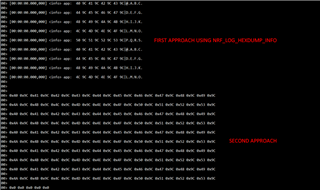
Thanks in advance
Nick



